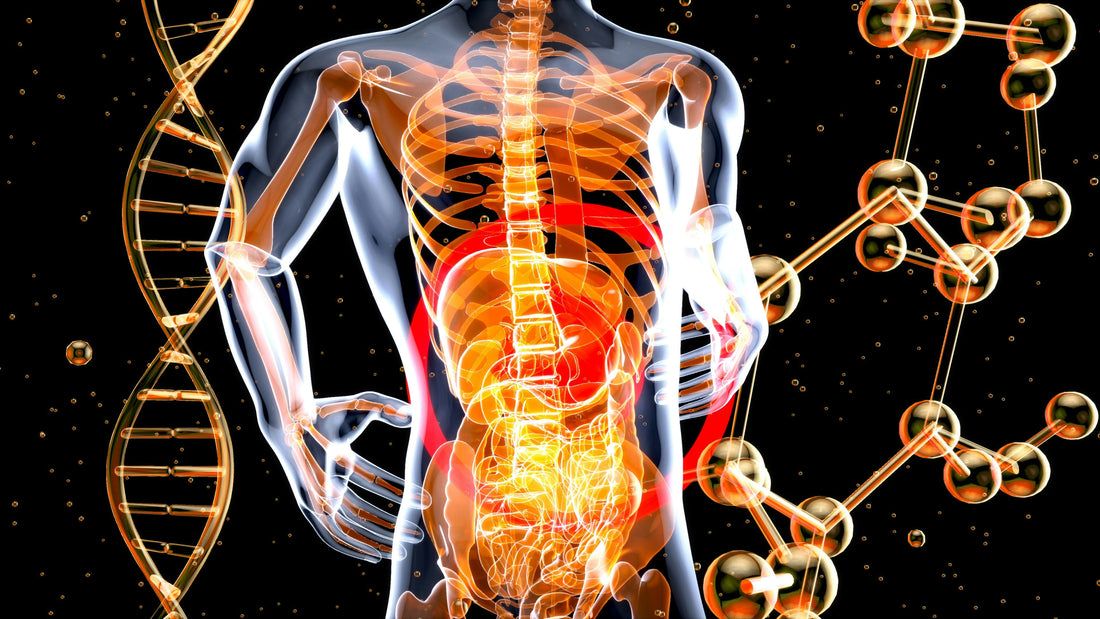
The Role of Gut Health in Overall Wellness: Probiotics and Beyond
Share
When people think about wellness, they often picture exercise routines, balanced diets, or mindfulness practices. However, one of the most powerful contributors to health often goes unnoticed: gut health. The gut is more than just the place where food is digested — it’s home to trillions of bacteria, fungi, and microorganisms collectively known as the gut microbiome. Research continues to show that gut health impacts digestion, immunity, mood, and even chronic disease prevention.
In this article, we will explore the crucial role of gut health in overall wellness, the science behind probiotics, and other ways to support a balanced gut microbiome naturally.
Why Gut Health Matters
Your gut microbiome is sometimes referred to as the “second brain.” This is because of its ability to influence not only digestion but also mental health, immunity, and metabolic processes. A healthy gut helps break down nutrients, produces essential vitamins like B12 and K, and supports your body in fighting off harmful pathogens.
On the other hand, poor gut health can lead to bloating, constipation, weakened immunity, inflammation, and even long-term conditions like irritable bowel syndrome (IBS) or autoimmune diseases.
SEO keywords to keep in mind: gut health, probiotics, microbiome, digestive health, immunity support.
Probiotics: The Power of Good Bacteria
Probiotics are live microorganisms, often called “good bacteria,” that provide numerous health benefits when consumed in the right amounts. These bacteria restore balance in the gut microbiome and prevent harmful bacteria from dominating.
Benefits of Probiotics:
-
Digestive Support – Probiotics help regulate bowel movements and reduce bloating or discomfort.
-
Immune System Boost – Around 70% of your immune system resides in the gut. Balanced gut flora strengthens immune defense.
-
Mental Health Connection – Studies suggest probiotics can reduce symptoms of anxiety and depression due to the gut-brain connection.
-
Weight Management – Certain probiotic strains may help regulate metabolism and reduce fat storage.
Common probiotic-rich foods include yogurt, kefir, sauerkraut, kimchi, miso, and kombucha. For convenience, many people also turn to probiotic supplements to ensure consistent intake.
Beyond Probiotics: Prebiotics and Synbiotics
Supporting gut health isn’t just about adding probiotics. To thrive, these beneficial bacteria need the right “fuel,” which comes from prebiotics.
-
Prebiotics are fibers that feed good bacteria. Examples include garlic, onions, bananas, asparagus, and oats.
-
Synbiotics combine probiotics and prebiotics to enhance effectiveness.
A diet rich in both probiotics and prebiotics creates a balanced environment where the microbiome can flourish.
The Gut-Brain Connection
One of the most fascinating aspects of gut health is its connection to mental health. The gut communicates with the brain through the vagus nerve and neurotransmitters like serotonin, 90% of which is produced in the gut.
Poor gut health can contribute to stress, anxiety, and depression, while a healthy gut may improve mood, focus, and emotional resilience.
This means that supporting your microbiome is not only good for physical wellness but also for mental clarity and emotional balance.
Lifestyle Habits That Improve Gut Health
In addition to diet, your daily habits play a significant role in maintaining a healthy gut microbiome.
-
Eat More Fiber – Whole grains, fruits, and vegetables help feed beneficial bacteria.
-
Stay Hydrated – Water supports smooth digestion and nutrient absorption.
-
Limit Processed Foods – Excess sugar and additives disrupt the microbiome balance.
-
Manage Stress – Chronic stress can alter gut bacteria, so meditation and yoga are beneficial.
-
Exercise Regularly – Physical activity promotes microbial diversity.
-
Get Enough Sleep – Poor sleep can negatively impact gut bacteria and digestion.
When to Consider Probiotic Supplements
While diet should always be the foundation of gut health, probiotic supplements can be useful for:
-
People with digestive issues like IBS or constipation.
-
Those taking antibiotics, which can wipe out healthy bacteria.
-
Individuals seeking targeted benefits (e.g., improved immunity or mood support).
When choosing a supplement, look for one with multiple strains, a high CFU (colony-forming units) count, and third-party testing for quality.
Final Thoughts
Gut health is at the center of wellness, influencing not only digestion but also immunity, mood, and overall vitality. By incorporating probiotics, prebiotics, and lifestyle changes, you can create a balanced microbiome that supports long-term health.
Your gut truly is the foundation of your well-being — and investing in it is one of the smartest health decisions you can make.